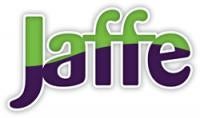Flip to any news channel and you will most likely see Kellyanne Conway, President Trump’s campaign manager turned political advisor, vehemently defending Trump’s latest actions. Love her or hate her, one thing is for certain: She is unflappable. Even as you chafe and cringe at the commentary, Conway always stays on message, hammers home her point (whether it’s factual or not) and owns each and every interview. She doesn’t shy away from any reporter or any media outlet. She goes after it as if it’s hand-to-hand combat, yielding her well-practiced message points and “alternative facts” like a sharp sword.
For most, working with the media can be intimidating and scary, and we don’t have the same Teflon coating as Conway. For us, the typical concerns and hesitations inevitably creep in – what if I am misquoted? What if my comments are misinterpreted? What if I just sound uninformed?
Whether media requests come through a strategic marketing effort – or if it’s a reaction to a case you are working on, a presentation you gave or some other catalyst – being prepared for telephone and broadcast interviews can undoubtedly buoy your reputation, further position you as a thought leader and strengthen your personal brand.
Nailing Your Media Interview
Even though it may be intimidating to have a reporter keyed into your every word, you can control the interview and come away with a nice placement that helps further your position. Like a professional athlete, Conway doesn’t step onto the field without practice and neither should you. Below are five tips to help you prepare for and nail media interviews like a pro:
-
Know the medium – Newspaper reporters will approach the interview differently than broadcast reporters, but a good rule of thumb is to keep your comments brief, on point and free of legalese. This is especially important during broadcast interviews, where the interview may last 10 minutes but your sound bite will be reduced to less than 10 seconds.
-
Draft key messages – With only 10 seconds to make your point, it’s important to know ahead of time what you’re going to say and how you’re going to say it. Prepare a list of three key points and be ready to repeat them so your messages are heard.
-
Always assume the microphone is hot – To avoid a gaffe like the one by CNN’s Kyra Phillips, who visited the ladies’ room while her microphone was still turned on, assume that your mic is always live and that everything you say is on the record and could potentially end up in the story.
-
Use every question as an opportunity to tell your story – Instead of a yes or no answer, expand on why, talk about what else can still be done, discuss the impact of legislation or the outcome of the case, etc. Use the opportunity to drive your messages home.
-
Flag important points – A really good way to make sure your messages are heard and that you are quoted accurately is to flag important points for the reporter by using key phrases like, “If you were to quote me, I’d say…,” “The main takeaway is…,” or “The most important point to consider is….”
Familiarize Yourself with the Media
Ultimately, the best preparation for media interviews is to know the reporters who cover your region, industry and areas of practice. Read their stories, speak to them on background and develop a relationship. While we certainly don’t recommend using “alternative facts” to make your point, there is no doubt that watching Kellyanne Conway handle a live interview is great training.



 />i
/>i

